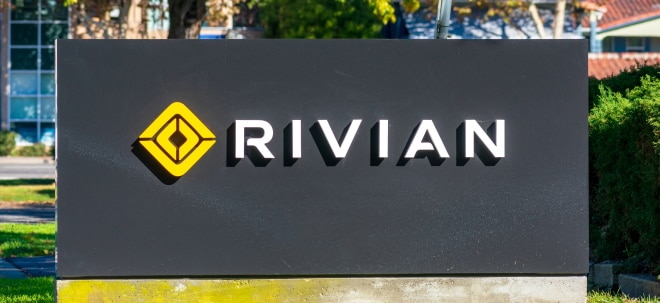Bariatric Beds Market to Reach $583.8 million, Globally, by 2034 at 5.3% CAGR: Allied Market Research
Bariatric beds are widely used in medical, long-term care settings and home healthcare settings due to their enhanced weight capacity, durability, and patient safety features. These beds are specifically designed to accommodate obese and overweight patients, offering improved comfort, mobility support, and caregiver accessibility. Applications include hospitals, rehabilitation centers, home care, and surgical recovery settings. With rise in prevalence of obesity, increase in demand for specialized patient care equipment, and advancements in healthcare infrastructure, bariatric beds continue to gain traction across acute care, post-acute care, and chronic disease management globally.
WILMINGTON, Del., Nov. 4, 2025 /PRNewswire/ -- Allied Market Research published a report, titled, "Bariatric Beds Market by Weight Capacity (500 to 700 lbs, 701 to 1000 lbs, and More than 1000 lbs), Product Type (Manual Bariatric Beds, Fully-Electric Bariatric Beds, and Semi-Electric Bariatric Beds), and End User (Hospitals & Clinics, Long-Term Care Facilities, and Home Care Settings): Global Opportunity Analysis and Industry Forecast, 2025-2034". According to the report, the "bariatric beds market" was valued at $347.7 million in 2024, and is estimated to reach $583.8 million by 2034, growing at a CAGR of 5.3% from 2025 to 2034.

Request Sample of the Report on Bariatric Beds Market Forecast 2034 - https://www.alliedmarketresearch.com/request-sample/A62724
Market Introduction
Bariatric beds comprise specialized hospital and homecare beds designed to accommodate patients with obesity or morbid obesity, typically supporting weights above standard hospital bed limits. These beds feature reinforced frames, wider sleeping surfaces, enhanced mobility aids, and pressure redistribution systems to ensure patient comfort and caregiver safety. Bariatric beds are essential in the treatment and care of obese patients across hospitals & clinics, long-term care facilities, and homecare settings. The market has gained traction globally due to the rise in prevalence of obesity, increased awareness of patient-centered care, and surge in demand for ergonomic solutions that minimize caregiver injury.
According to the World Obesity Atlas 2023, more than 1 billion people worldwide are projected to live with obesity by 2030, significantly influencing the demand for bariatric care infrastructure. Furthermore, regulatory compliance standards in regions such as North America and Europe are compelling healthcare providers to adopt equipment that meets specific safety and performance criteria for bariatric patients. Manufacturers are also introducing modular and customizable designs, making bariatric beds suitable for diverse clinical needs and facility types. Emerging markets in Asia-Pacific and Latin America present significant growth opportunities due to improving healthcare infrastructure, government-backed obesity prevention programs, and the rise of private multispecialty hospitals. Overall, the bariatric beds market continues to evolve, supported by demographic trends, healthcare system modernization, and the increasing prioritization of inclusive, high-quality patient care.
Report Overview
The bariatric beds market is segmented into weight capacity, product type, end user, and region. On the basis of weight capacity, it is bifurcated into 500-700 lbs, 701-1000 lbs, and more than 1000 lbs. On the basis of product type, the market is segregated into manual bariatric beds, fully-electric bariatric beds, and semi-electric bariatric beds. On the basis of end user, the market is categorized into hospitals & clinics, long-term care facilities, and home care settings. Region-wise, the market is analyzed across North America (U.S., Canada, and Mexico), Europe (Germany, France, UK, Italy, Spain, and rest of Europe), Asia-Pacific (China, Japan, India, Australia, South Korea, and rest of Asia-Pacific), and LAMEA (Brazil, Saudi Arabia, South Africa, and rest of LAMEA).
- On the basis of weight capacity, the 500-700 lbs segment dominated the market in terms of revenue in 2024 and 701-1000 lbs segment is anticipated to grow at the fastest CAGR during the forecast period.
- On the basis of product type, the fully-electric bariatric beds segment dominated the market in terms of revenue in 2024 and is anticipated to grow at the fastest CAGR during the forecast period.
- On the basis of end user, the hospitals & clinics segment dominated the market in terms of revenue in 2024. However, the long term care facilities segment is anticipated to grow at the fastest CAGR during the forecast period.
- Region wise, North America generated the largest revenue in 2024. However, Asia-Pacific is anticipated to grow at the highest CAGR during the forecast period.
Report Coverage & Details
Report Coverage | Details |
Forecast Period | 2025–2034 |
Base Year | 2024 |
Market Size in 2024 | $347.7 million |
Market Size in 2034 | $583.8 million |
CAGR | 5.3 % |
No. of Pages in Report | 324 |
Segments Covered | Weight Capacity, Product type, End User, and Region |
Target Region / Countries | North America (U.S., Canada, and Mexico), Europe (Germany, France, UK, Italy, and rest of Europe), Asia-Pacific (Japan, China, India, Australia, and rest of Asia-Pacific), and LAMEA (Brazil, South Africa, Saudi Arabia, and Rest of LAMEA). |
Drivers | Rising Global Prevalence of Obesity |
Growing Geriatric Population with Limited Mobility | |
Increasing Demand for Specialized Care and Healthcare Infrastructure Modernization | |
| Growing Demand in Home Healthcare and Aging-in-Place Trend |
Restraints | High Cost of Bariatric Beds and Associated Maintenance Limited Awareness and Accessibility in Low-Income Settings |
Want to Explore More, Connect to our Analyst - https://www.alliedmarketresearch.com/connect-to-analyst/A62724
Market Growth & Opportunities Factors:
The bariatric beds market is witnessing sustained growth, largely driven by the increasing global prevalence of obesity and obesity-related health conditions. As more individuals qualify as morbidly obese (with a BMI ≥ 40), healthcare providers are investing in specialized equipment that ensures safety, comfort, and effective treatment for this patient's population. Bariatric beds are specifically engineered to support higher weight capacities and wider body dimensions, reducing the risk of injuries to both patients and caregivers. In addition, the rise in bariatric surgeries such as gastric bypass and sleeve gastrectomy has led to a corresponding demand for post-operative care solutions, including hospital-grade bariatric beds designed for enhanced mobility, pressure redistribution, and easier patient handling.
In addition, there is a growing demand for home healthcare and long-term care facilities, especially in aging populations. Many elderly individuals with limited mobility and obesity require specialized beds to manage comorbidities such as pressure ulcers, respiratory conditions, and impaired circulation. The shift from hospital-based care to home-based or residential care settings is pushing the demand for technologically advanced bariatric beds with integrated features such as electronic controls, side rail adjustments, and automated repositioning systems.
Moreover, there is rising awareness among healthcare providers about injury prevention for staff. Bariatric patients often require additional support during repositioning, transfers, and daily care, which can lead to musculoskeletal injuries among nursing staff. Institutions are increasingly prioritizing investments in bariatric beds with integrated lift-assists and turning mechanisms to minimize workplace injuries and meet occupational safety guidelines.
The market presents significant opportunities as well. Firstly, the development of smart bariatric beds with embedded sensors and remote monitoring capabilities offers considerable potential. These features allow for real-time tracking of patient vitals, bed exits, and pressure points—enhancing patient safety and reducing manual workload for caregivers. For instance, Arjo's bariatric beds are integrated with pressure ulcer prevention technology and care analytics, streamlining patient care in high-risk populations.
Further, emerging markets represent untapped growth potential. As countries in Asia-Pacific, Latin America, and the Middle East grapple with rising obesity rates, there is a growing need to upgrade healthcare infrastructure. Government investments in public health and hospital modernization programs are expected to increase demand for bariatric beds in these regions.
Moreover, opportunity lies in customized bariatric solutions for specialized care settings. Manufacturers are beginning to design modular bariatric bed systems tailored to specific patient needs—such as ICU-grade beds with integrated respiratory support for morbidly obese patients or transport-compatible bariatric beds for ambulance services. These niche innovations help providers deliver more precise care while expanding the use of bariatric beds beyond traditional inpatient wards.
Major Challenges in Industry & Solutions:
Despite steady market expansion, the bariatric beds market faces key challenges that hinder its full potential. One major restraint is the high acquisition and maintenance cost of bariatric beds, which can strain hospital and long-term care facility budgets. These beds require specialized construction, reinforced frames, and advanced mobility features, making them significantly more expensive than standard hospital beds. This cost barrier is particularly pronounced in low- and middle-income countries, limiting widespread adoption. To overcome this, manufacturers are focusing on modular designs and scalable features, allowing healthcare providers to upgrade standard beds to bariatric-grade capabilities incrementally. For example, Hillrom offers bariatric bed systems with optional add-ons such as expansion kits and integrated lift mechanisms that reduce initial investment costs while meeting future care needs.
Another key challenge is the limited availability of trained staff and infrastructure to handle bariatric patients safely. Inadequate knowledge or improper use of bariatric equipment can lead to patient injuries or staff with musculoskeletal disorders. To mitigate this, healthcare institutions are increasingly investing in training programs and ergonomic protocols to educate staff on the proper handling of bariatric patients and beds. Furthermore, companies such as Invacare and Arjo are offering turnkey solutions, including equipment, training, and service support packages, to improve operational efficiency and patient outcomes.
For Purchase Related Queries/Inquiry - https://www.alliedmarketresearch.com/purchase-enquiry/A62724
Regional Insights
North America holds the largest share in the bariatric beds market, attributed to a mature healthcare infrastructure, increasing obesity rates, and favorable reimbursement policies. According to the CDC, over 42% of adults in the U.S. were classified as obese in 2022, fueling the demand for bariatric equipment in hospitals and long-term care settings. The presence of key market players, such as Stryker and Hillrom (now part of Baxter), further drives innovation and product availability. In addition, the region benefits from a strong emphasis on patient safety protocols and occupational health regulations, encouraging the adoption of bariatric beds with features such as automated repositioning, fall prevention systems, and integrated lifts.
Europe represents the second-largest market for bariatric beds, supported by a well-established healthcare system, rising elderly population, and increasing public health initiatives targeting obesity. Countries such as the UK, Germany, and France are major contributors. In the UK alone, the NHS reported that over 1 million hospital admissions in 2022 were linked to obesity-related conditions, highlighting the need for specialized equipment such as bariatric beds in public hospitals. European healthcare policies emphasize care quality and staff safety, promoting the use of ergonomic, patient-centric beds that reduce caregiver injuries. In addition, home healthcare and elderly care facilities are rapidly expanding in Europe, leading to increased purchases of bariatric equipment for residential use.
Asia-Pacific is the fastest-growing region in the bariatric beds market, driven by increasing obesity prevalence, aging populations, and expanding medical infrastructure. Countries such as China, India, and Japan are witnessing a surge in demand for bariatric equipment, particularly in urban hospitals and specialty clinics. Rising healthcare spending and government initiatives to modernize public health facilities are also playing a critical role. In Japan, for instance, the Ministry of Health is promoting improved eldercare standards, while in India and China, private hospitals are investing in bariatric care to cater to an emerging middle class with rising rates of diabetes and obesity. Moreover, the growth of medical tourism in Southeast Asia is pushing hospitals to upgrade their infrastructure to accommodate bariatric patients from around the globe.
Major Global Key Players:
The major players in the bariatric beds industry include
- Drive DeVilbiss Healthcare,
- Invacare Corporation,
- Baxter International Inc.,
- Stryker Corporation,
- GF Health Products, Inc.,
- Cobi Rehab,
- Alerta Medical Ltd.,
- Rotec International,
- Arjo,
- Joerns Healthcare LLC.
Explore AMR's Extensive Ongoing Coverage on Life Science Industry:
U.S. IVF Services Market / In Vitro Fertilization Market - https://www.alliedmarketresearch.com/us-ivf-services-market
Patient Mechanical Lift Handling Equipment Market - https://www.alliedmarketresearch.com/patient-mechanical-lift-handling-equipment-market
Multiplex Assay Market - https://www.alliedmarketresearch.com/multiplex-assays-market
Over the Counter (OTC) Drugs & Dietary Supplements Market - https://www.alliedmarketresearch.com/over-the-counter-OTC-drugs-and-dietary-supplements-market
Longevity and Anti-senescence Therapy Market - https://www.alliedmarketresearch.com/longevity-and-anti-senescence-therapy-market-A14010
AVENUE - A Subscription-Based Library (Premium on-demand, subscription-based pricing model) Offered by Allied Market Research:
AMR introduces its online premium subscription-based library on Avenue, designed specifically to offer cost-effective, one-stop solutions for enterprises, investors, and universities. With Avenue, subscribers can avail themselves of an entire repository of reports on more than 2,000 niche industries and more than 12,000 company profiles. Moreover, users can get online access to quantitative and qualitative data in PDF and Excel formats along with analyst support, customization, and updated versions of reports.
Get access to the library of reports at any time from any device and anywhere. For more details, follow the link: https://www.alliedmarketresearch.com/library-access
About Us
Allied Market Research (AMR) is a full-service market research and business consulting wing of Allied Analytics LLP based in Wilmington, Delaware. Allied Market Research provides end-to-end solutions along with information, education, advocacy, and networking resources to SMEs and early-stage start-ups to bring excellence to their processes. In addition, we offer a nurturing environment required to develop and grow businesses, including business planning; virtual support; market intelligence; acquiring resources; and getting direct access to finance, suppliers, and other experts to boost the growth of businesses and entrepreneurs.
Our bundled and hassle-free business support systems are customized to meet the needs of SME consultants and industry leaders. Moreover, our large network of skilled consultants and experts help start-ups get the business on a roll.
To find out more, visit www.alliedmarketresearch.com or follow us on Twitter, LinkedIn and Facebook.
Contact
David Correa
1209 Orange Street,
Corporation Trust Center,
Wilmington, New Castle,
Delaware 19801 USA.
Toll Free: +1-800-792-5285
Int'l: +1-503-894-6022
UK: +44-845-528-1300
Hong Kong: +852-301-84916
India (Pune): +91-20-66346060
Fax: +1-855-550-5975
help@alliedmarketresearch.com
Web: https://www.alliedmarketresearch.com
Logo: https://mma.prnewswire.com/media/636519/Allied_Market_Research_Logo.jpg
![]() View original content:https://www.prnewswire.co.uk/news-releases/bariatric-beds-market-to-reach-583-8-million-globally-by-2034-at-5-3-cagr-allied-market-research-302603964.html
View original content:https://www.prnewswire.co.uk/news-releases/bariatric-beds-market-to-reach-583-8-million-globally-by-2034-at-5-3-cagr-allied-market-research-302603964.html

